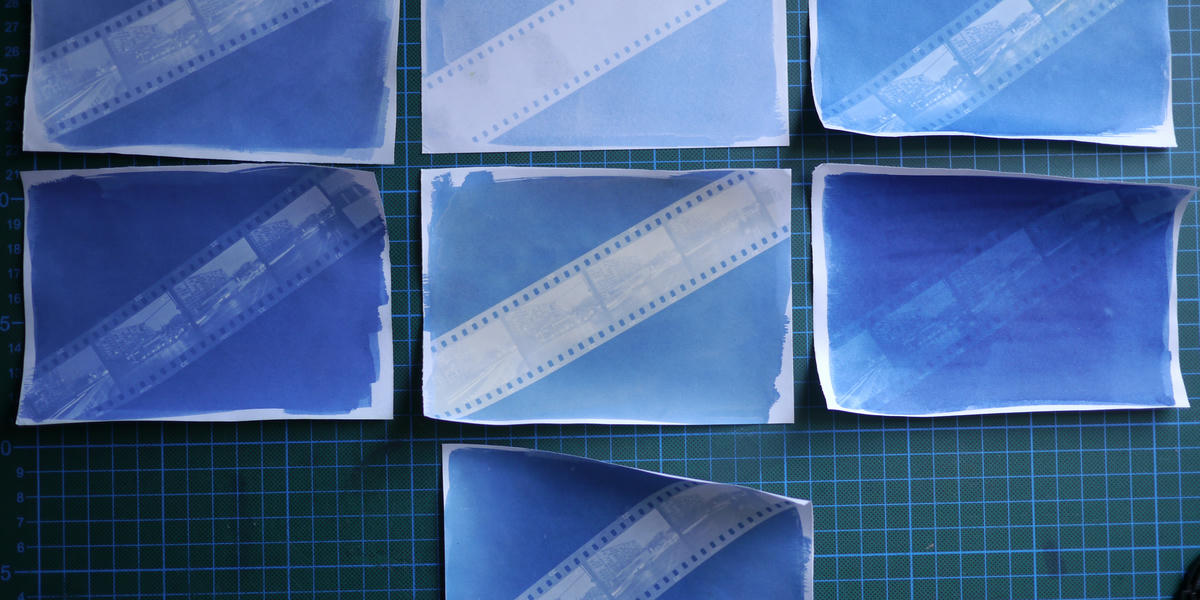Cyanotypes are cool! But you know what’s even cooler? Making cyanotype negatives on glass plates directly in camera!
As I’ve talked about in a previous article I’ve developed a fairly reliable process to create in-camera cyanotype negatives on agar coated glass plates. They not only look great but also have a much higher resolution since they don’t have the rough structure inherent in paper negatives. On top of that having a negative on a transparent backing opens up the possibility of using it to directly make positive prints from it, which is very exciting.
Let’s talk about my process for making them!
Read more…
If you’ve read my previous article you know that there were some loose ends I was meaning to tie up using good old science, specifically the significant loss in sensitivity observed when mixing the classic potassium ferricyanide “developer” with your ammonium ferric citrate or ferric ammonium oxalate.
So let’s do that!
A quick recap
Before we get into it, a quick recap of how the “classic” cyanotype process and formula works!
We usually start out with two compounds, ammonium ferric citrate and potassium ferricyanide which get dissolved in water and brushed or otherwise coated onto some kind of substrate, usually paper.
Read more…
Hi!
This blog post is roughly based on a short talk I gave at HFG Karlsruhe early this year and this is my attempt to finally expand on it a little and make the contents publicly available. It’s not really a tutorial on how to actually make cyanotypes, but more of a general overview of different techniques.
I’ve spent the last 8 years working with cyanotype and have developed some stuff that I think could help make other people’s cyanotypes better. Maybe.
I mean, what even is “better”?
Read more…
This post was originally posted to my tumblr in 2017, this version has been slightly revised.
While trying to improve the quality of the cyanotype prints made on my home built enlarger I came across a whole number of different techniques for increasing the sensitivity and quality of cyanotype prints, but I’ve never done a comprehensive comparison.
So a few days ago I sat down and tested 6 different cyanotype formulas and techniques. All prints were made on A5 size printer paper and were exposed for 15 minutes. I chose a negative that has a wide dynamic range with deep shadows and some very bright highlights. All images were first washed in tap water and then in a weak solution of acetic acid and hydrogen peroxide.
I also tested toning with three of the techniques using a mix of tannic acid and black tea.
Most of the different formulations used here were taken from Mike Ware’s excellent Cyanomicon which can be found here: http://www.mikeware.co.uk/mikeware/downloads.html
Lets begin.
Read more…




